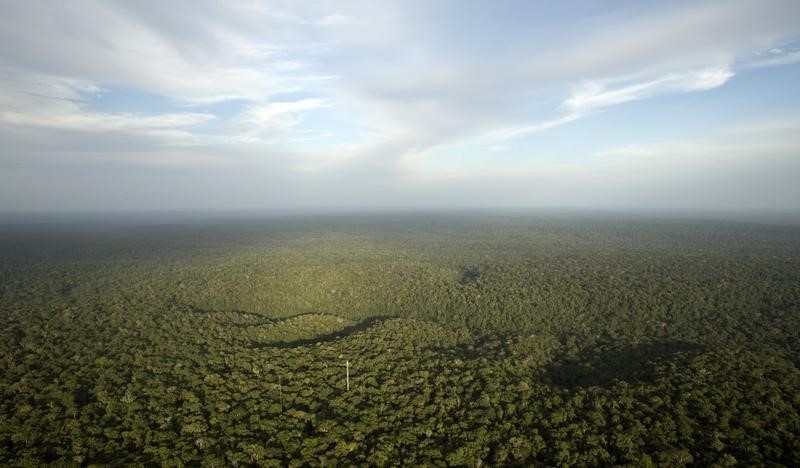By Ana Mano
SAO PAULO (Reuters) - Bunge Inc and partners on Tuesday launched an online database aimed at helping companies make investment and purchasing decisions that discourage farmers from cutting down trees for arable land.
The Portuguese-language database at www.agroideal.org currently has data on Brazil's Cerrado and will later include the Amazon (NASDAQ:AMZN) region. The information can be used to assess the social and environmental risks of contributing to deforestation through soybean planting expansion in Brazil, the world's largest exporter of the oilseeds.
"We are now testing the tool in a variety of ways on the commercial side, testing a bunch of scenarios," said Stewart Lindsay, Bunge's vice president of global corporate affairs, said during the launch of the initiative in São Paulo.
The project was mostly funded by Bunge and developed in partnership with NGOs, other global traders, banks, consultancy firms and Brazil's government research agency Embrapa. The project will be replicated in Paraguay and Argentina, Lindsay said.
Bunge, which invested some $1.3 million in the platform, made a commitment two years ago to eliminate deforestation in its supply chain.
Lindsay said Bunge's focus is to increase the traceability of its supply chain, naming Brazil's Matopiba agricultural frontier as a high-priority area. Bunge said in May it was able to trace the origins of 80 percent of its purchases in key municipalities in Brazil, Paraguay and Argentina.
Traders like Bunge should be the primary users of the database as they source grains, especially in terms of where they to locate infrastructure, said David Cleary, director of agriculture at The Nature Conservancy, the environmental group that helped conceive the platform. Other potential users of Agroideal include Brazilian authorities responsible for infrastructure planning policies, he said.
